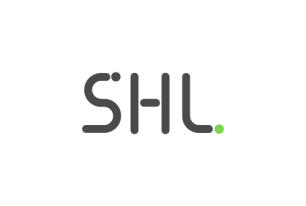6 Key Things to Consider for Hiring in a Hybrid World
As ways of working and expectations shift in the hybrid world, organizations need to think about talent acquisition differently. Learn what you need to focus on in your hiring strategy.
Share
In this first part of the blog series, I talked about how organizations can manage their workforce and adjust their talent management strategy in the wake of the hybrid era taking over the world of work. In this second blog, I will focus more on how employee expectations and work dynamics have changed in the past two years, and how organizations can reshape their hiring strategy in the hybrid world for generations to come.
We are witnessing the biggest evolution in the workplace in decades as the pandemic turned long-established features of work and life upside down. In many ways, our shared experiences served to accelerate changes already underway, and we now have a great opportunity to enhance work experiences for generations to come. As the fundamentals of work — time, place, tools — are being reset, we are also reconsidering our priorities as individuals. These new and changing dynamics create risks and opportunities for those focused on hiring and onboarding new employees in a hybrid world.
New work foundations
A fundamental change is the power shift from employer to employee. The ‘Great Resignation’ has illustrated that people want more from their work than money and status and that individuals now have much more choices. Many knowledge-based workers can work from anywhere, anytime and they are seeking opportunities to enable flexibility in their lives, rather than the other way around, through remote working.
Co-creation and collaborative work are now an everyday feature for knowledge workers, as work is digitized and completed in real-time on shared documents and via instant collaboration tools. For many, the purpose of going to the office is now more for socialization and networking rather than productivity. Organizations are also becoming increasingly flatter and more dispersed—with teams working across time zones, and geographies fueled by connectivity, real-time information, and digital solutions. Critical skills are no longer linked just to roles, meaning that leaders need to mobilize talent based on their skills and potential to grow.
Objectively understanding people and collating employee data to power organizational agility and evolution has become non-negotiable for organizations. For employees, new foundations open new possibilities as everything can be learned and everyone has potential.
New work dynamics

Employee expectations evolve
Uncertainty, ambiguity, and disruption continue to be key features in our lives today onward. The pandemic gave us all a new lens on these aspects, with individualized experiences and consequences to manage. Collectively, we all experienced trauma to differing degrees, but certainly, emotions of concern and anxiety, if not grief and sadness. Imposed lockdowns, loss of social contact, rationed resources, and for many, a first glimpse into ‘survival instinct’ took its toll, and labels such as “Covid blues” and “languishing”, started to emerge to help us understand the feelings we were experiencing. A Randstad survey in 2021, reported 45% of individuals are burning out as they seek more sustainable and meaningful work.
The ‘Great Resignation’ has illustrated that people want more from their work than money and status.
Hiring in a hybrid world
Considering the changes in the work dynamics and expectations, organizations need to focus on purposeful work, flexibility, and positive work culture to make themselves irresistible to candidates. Moreover, here are some key things to consider for those focused on talent acquisition:
- Resist the urge to go back and look for an opportunity to reinvent
Hybrid workplaces come with new parameters but also new possibilities. Previously, recruiters had one specific role to fill—a clearly defined set of criteria and expectations. However, with pace and change accelerating, organizations find multiple possibilities emerge and evolve as roles, teams, and tasks change and shift in urgency. Remote working creates new and much larger talent pools—untapped potential to access and attract, and hiring processes tended to involve some interaction and assessment online, followed by in-person meetings and final decision-making—hence, the term “hybrid hiring”. Now, we have the need and capability to work in synchronous ways, to create the optimal blend of virtual and in-person to enable speedier hiring decisions and empower individuals to make decisions that are right for them. - Start broad, narrow later
The pace of change and our capability to transform through technology and automation means roles, tasks, and organizational priorities constantly move. Recruiters find it increasingly challenging to specifically define a role and responsibilities as well as exact skills and experiences essential to success. The secret to the success of hiring in hybrid workplaces lies in keeping hiring broad to start and narrowing once organizational needs and individual fit are clear. Focusing on groups of roles, teams, or functions and broader measures of capability and potential can help tackle this, as well as reveal hidden gems you might have previously overlooked. - Empower individuals and accelerate time to offer
In today’s job market, individuals have multiple options to explore. As a recruiter, you need to skilfully balance several factors to make individuals feel equipped and in control of their decision-making. This involves communicating your company’s values and streamlining the hiring process to ensure you get offers in the hands of top candidates ahead of the competition. You can do this by using virtual tools. The advances in assessment tools and virtual technology mean you can very quickly reach the offer stage and then provide individuals with options to further engage with and explore your organization. - Don’t compromise on objectivity
Talent pools, individual circumstances, gaps in employment, and the need to build diverse and inclusive organizations—the pressure is firmly on recruiters to get hiring decisions right holistically. In this scenario, it can feel tempting to remove stages of a hiring process to get to speed up the time to offer. But now is not the time to compromise on building an objective understanding of what an individual can do today and what they could do tomorrow.
Make your process robust by relying on scientifically proven measures of potential and capability and enable fair comparisons of candidates from different backgrounds and work experiences. Access fast, objective people insight through talent assessments and ramp up the power of prediction in your hiring process to help you succeed in this hybrid world. - Build an authentic connection
Many individuals seek a sense of belonging and to feel they are contributing to an over-arching purpose, with a visible impact on society. This means candidates need access to people and information to understand the company they could be joining and to build an authentic connection. For volume roles, enabling individuals to explore your organization and culture at their own pace is critical. For more niche or senior-level roles, this might be more about giving the individual choice about who they meet with, and what they want to explore, based on what is most important to them. Invest time into your hybrid hiring process for individuals to explore your company and build connections, even after you offer them a job. - Personalize experiences and pre-board your new hires
Personalizing experiences at key moments in hiring can help you to stand out from a crowded marketplace and ease the transition to an employee. Fast-tracking through objective assessment to offer stage and providing individuals with the opportunity to explore your company through meeting potential colleagues, seeing in-person working environments, or accessing the information on careers pages, can also serve to speed up onboarding. Making use of assessment insights through personalized feedback and development advice, for example through SHL’s Motivation Questionnaire (MQ), will help new employees to feel valued and supported and enable managers to pinpoint development and onboarding plans.
We have seen an evolution in today’s hybrid workplaces. Now it is the time for organizations to embrace objectivity, empowerment, and personalized, authentic connection in the hiring process—because if you don’t, candidates will find someone who does.
For more insights into how to successfully adapt to and sustain work in a hybrid world, download our latest report.









